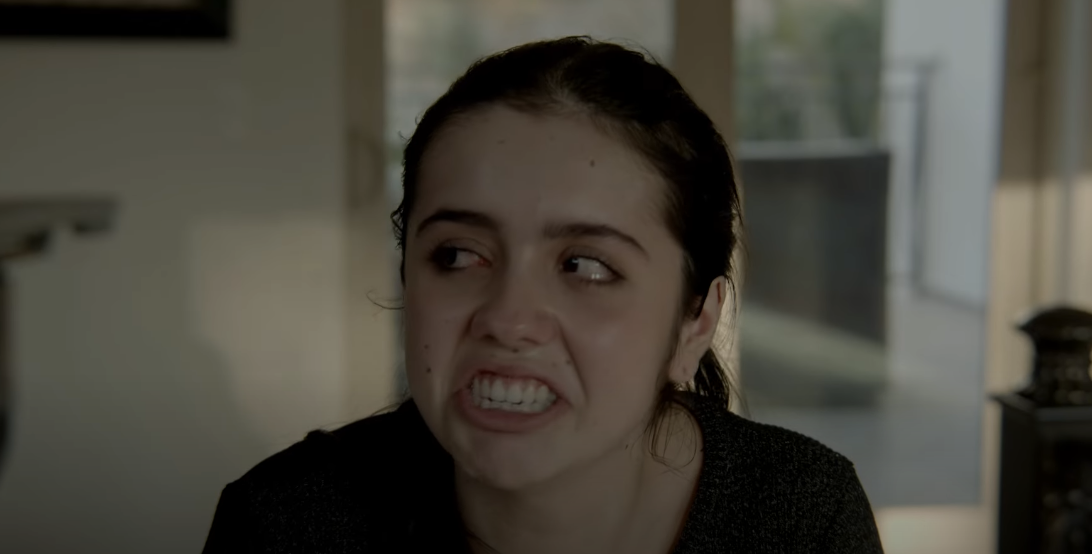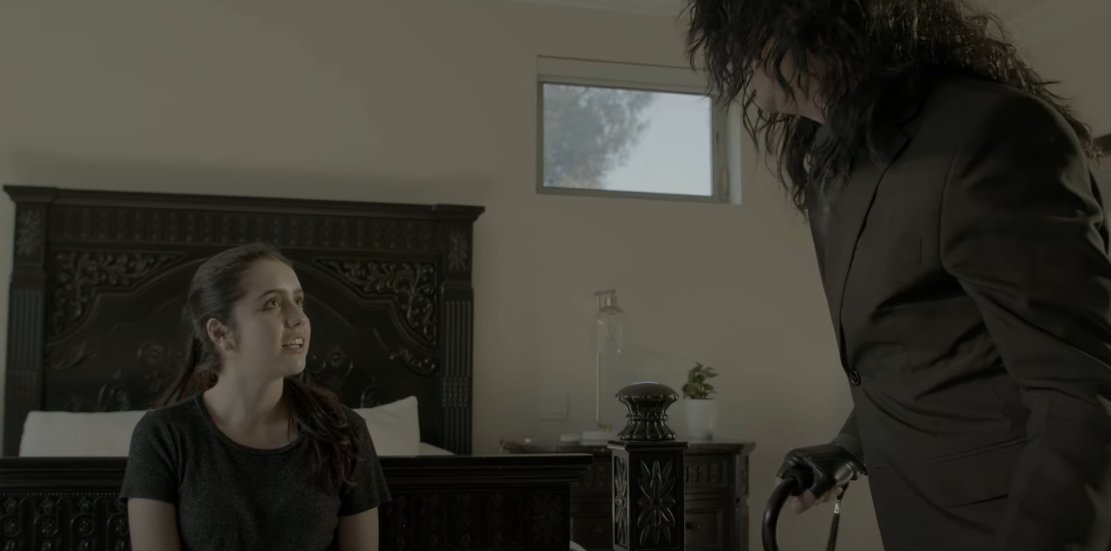Love Never Leaves (2025) is a hypnotically unsettling foray into minimalist horror, showcasing Jamie Grefe’s continued talent for transforming the tiniest of settings into a world brimming with dread. Set almost entirely in a single luxury AirBnB, the film follows an aspiring actress, played with doe-eyed intensity by Mariana Carvajal, as she encounters the house’s eccentric and unnervingly theatrical owner, “Ronald,” brought vividly to life by Chris Spinelli. The dynamic between these two is both tense and darkly humorous, creating a claustrophobic cat-and-mouse game that lingers long after the credits roll.
Spinelli delivers perhaps his most daring performance yet, embodying a character that oscillates between absurdity and menace. His theatricality—singing, dancing, and crawling up stairs in agonizingly drawn-out sequences—evokes shades of Jerry Lewis in Smorgasbord and Jordan Belfort on Quaaludes, while maintaining a sinister edge that keeps viewers on their toes. Carvajal complements this with a measured, emotionally grounded performance, shifting effortlessly from stiff apprehension to fully embodied terror, giving her character a believable depth that anchors the film’s more surreal flourishes.
The film’s aesthetic is a study in “less is more.” With just two actors, a rubber machete, a walking stick, and a single house, Grefe builds tension through careful choreography and the characters’ physicality rather than conventional scares. There’s a charm in the film’s apparent minimalism—rumor has it it may have been shot in as little as eight hours—that aligns perfectly with its experimental, almost butoh-inspired movements. The eccentricity of Spinelli’s emo-band-inspired villain adds a layer of cultural nostalgia while amplifying the creepiness, making him both absurd and terrifying.
While the film’s deliberate pacing and repetition—especially the stair-climbing sequences—can feel a touch prolonged, it ultimately reinforces the hypnotic, dreamlike atmosphere that Grefe cultivates so well. The oppressive LA nightscapes, glimpsed in stock footage reminiscent of Ed Wood, and the artificiality of the scenario (actors switching in and out of character, rubber props that mimic violence without blood) contribute to the film’s uncanny, otherworldly quality.
If there’s a minor flaw, it’s the occasional clarity of Spinelli’s glasses breaking the otherwise consistently surreal presentation of his character, momentarily lessening the hypnotic effect. Still, this is a small critique in an otherwise mesmerizing piece of cinema. Love Never Leaves functions as a companion to Love Hurts, exploring obsession, predatory desire, and the Sisyphean persistence of the malevolent. It’s a minimalist, daring, and uniquely unsettling film that lingers in the imagination, proving once again that Jamie Grefe can create something extraordinary out of very little.
Overall, Love Never Leaves is a strange, darkly funny, and hypnotic descent into obsession and surreal horror, elevated by two fearless performances and a singular vision that leaves a lasting impression.
Jessie Hobson



